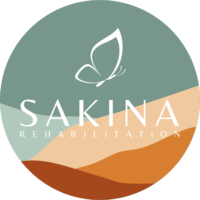Why Addiction is Lonely and the Benefits of a Recovery Community for Ongoing Support
Addiction is often described as a solitary struggle, a condition that isolates individuals from the people and activities they once loved. The loneliness of addiction can be one of its most devastating aspects, making it harder to seek help, maintain connections, and ultimately, recover. However, recovery from addiction doesn’t have to be a lonely journey. In fact, one of the most powerful tools in overcoming addiction is the benefits of a recovery community for ongoing support. At Sakina Alcohol and Mental Health Rehab, we emphasize the importance of community in recovery, understanding that ongoing support can make all the difference in achieving lasting sobriety. In this blog, we’ll explore why addiction is so lonely and how being part of a recovery community can provide the support, connection, and encouragement needed to build a fulfilling life in sobriety.
Understanding the Loneliness of Addiction
Addiction is not just a physical dependency on a substance; it’s also a mental and emotional battle that can lead to profound loneliness. The reasons for this loneliness are complex and multifaceted, often stemming from both the nature of addiction itself and the impact it has on relationships and social connections.
- The Nature of Addiction
Addiction is a condition that often drives individuals to prioritize their substance of choice above all else, including relationships, responsibilities, and self-care. As the addiction takes hold, individuals may withdraw from loved ones, hide their behavior, and avoid social situations where they might feel judged or pressured to stop using. This withdrawal can create a vicious cycle: the more isolated a person becomes, the more they turn to substances to cope with their feelings of loneliness, further deepening the isolation.
- Shame and Stigma
Shame is a powerful emotion that contributes significantly to the loneliness of addiction. Many people who struggle with addiction feel ashamed of their behavior, especially if they’ve made repeated attempts to quit and relapsed. This shame is often compounded by societal stigma, which views addiction as a moral failing rather than a disease. As a result, individuals may feel unworthy of support or fear judgment if they reach out for help, leading them to isolate themselves even further.
- Damaged Relationships
Addiction often leads to strained or broken relationships. The behaviors associated with substance use—such as lying, stealing, or neglecting responsibilities—can erode trust and lead to conflicts with family, friends, and colleagues. Over time, these damaged relationships can leave the individual with few, if any, social connections, exacerbating their sense of loneliness.
- The Cycle of Addiction and Isolation
The cycle of addiction and isolation can be self-perpetuating. As individuals become more isolated, they lose access to the support and social connections that could help them break free from addiction. This isolation can lead to feelings of hopelessness, depression, and anxiety, which in turn may drive further substance use as a way to numb these painful emotions.
The Power of Community in Recovery
While addiction is a lonely experience, recovery doesn’t have to be. One of the most effective ways to combat the loneliness of addiction is by becoming part of a recovery community. A recovery community provides ongoing support, connection, and encouragement, helping individuals rebuild their lives and sustain long-term sobriety. At Sakina, we believe in the transformative power of community, and we work to create an environment where our clients can connect with others who understand their struggles and share in their successes. The benefits of a recovery community for ongoing support cannot be overstated, as it plays a crucial role in helping individuals navigate the challenges of recovery.
- Breaking the Cycle of Isolation
One of the first and most important benefits of joining a recovery community is breaking the cycle of isolation. In a recovery community, individuals find themselves surrounded by others who have faced similar challenges and understand the loneliness of addiction. This sense of shared experience can be incredibly validating and reassuring, helping individuals feel less alone in their struggles. The benefits of a recovery community for ongoing support include this essential connection that helps clients maintain their commitment to recovery.
- Emotional Support and Understanding
A recovery community offers a level of emotional support that is often difficult to find elsewhere. Friends and family members who have not experienced addiction themselves may struggle to understand the complexities of the condition. In contrast, members of a recovery community have firsthand experience with addiction and recovery, which allows them to offer empathy, understanding, and nonjudgmental support.
In a recovery community, individuals can share their experiences, challenges, and victories without fear of judgment. This openness fosters a sense of trust and connection, making it easier to discuss difficult emotions and seek advice or encouragement. The emotional support provided by a recovery community can be particularly important during moments of doubt or when facing potential relapse triggers.
- Accountability and Motivation
Accountability is a key component of successful recovery, and being part of a recovery community provides a built-in system of accountability. When individuals commit to their recovery within a community, they are more likely to stay on track because they know others are invested in their success. Regular check-ins, group meetings, and one-on-one conversations with other community members help keep individuals accountable to their sobriety goals.
Moreover, seeing others succeed in their recovery can be highly motivating. Witnessing the progress and achievements of fellow community members serves as a reminder that long-term sobriety is possible, even in the face of challenges. This motivation can be a powerful force in maintaining commitment to recovery and pushing through difficult times.
- Learning from Others’ Experiences
A recovery community is a rich source of knowledge and wisdom. By engaging with others who are further along in their recovery journey, individuals can learn valuable lessons and strategies for managing their own sobriety. These shared experiences provide practical insights that can help individuals navigate common challenges, such as coping with cravings, dealing with stress, or rebuilding relationships.
In addition to practical advice, members of a recovery community often share stories of hope and resilience. Hearing about others’ successes and the obstacles they’ve overcome can inspire individuals to persevere in their own recovery efforts. This collective knowledge and experience are invaluable resources that can enhance an individual’s ability to maintain long-term sobriety.
- Opportunities for Personal Growth and Development
Being part of a recovery community offers numerous opportunities for personal growth and development. Many recovery communities provide workshops, group therapy sessions, and other activities designed to help individuals build new skills, explore their interests, and develop a stronger sense of self.
For example, at Sakina, we offer a range of therapeutic activities, including art therapy, mindfulness practices, and life skills training, all within a supportive community setting. These activities not only support recovery but also help individuals discover new passions and strengths. Engaging in these activities within a community context allows individuals to share their experiences with others, receive feedback, and celebrate their growth.
- Rebuilding Relationships and Social Connections
One of the most rewarding aspects of being part of a recovery community is the opportunity to rebuild relationships and establish new social connections. Addiction often leads to the breakdown of relationships, but recovery provides a chance to repair and strengthen those bonds. This is why Sakina has a focus on knowing addiction is lonely and focuses on promoting the benefits of a recovery community for ongoing support.
In a recovery community, individuals can practice healthy communication, trust-building, and conflict resolution skills in a safe and supportive environment. Over time, these skills can be applied to relationships outside the recovery community, helping individuals reconnect with family members, friends, and colleagues.
Moreover, the connections made within a recovery community often become deep and lasting friendships. These relationships are built on a foundation of shared experiences, mutual respect, and a commitment to sobriety. Having a network of sober friends can make socializing more enjoyable and reduce the temptation to return to substance use.
- Continuous Support and Encouragement
Recovery is not a one-time event; it is an ongoing process that requires continuous effort and support. A recovery community provides a consistent source of encouragement and reinforcement, helping individuals stay committed to their sobriety over the long term.
Even after completing a formal treatment program, individuals can continue to participate in their recovery community, attending meetings, sharing their experiences, and offering support to others. This ongoing involvement helps reinforce the positive changes made during treatment and provides a safety net in case challenges arise. At Sakina, we understand the importance of continuous support, which is why we offer aftercare programs and alumni networks to help our clients maintain their sobriety and stay connected to the recovery community. These programs ensure that individuals have access to the resources and support they need to thrive in their recovery journey. The benefits of a recovery community for ongoing support are evident in the sustained success and sense of belonging that our clients experience.
Why Choose Sakina for Community-Based Recovery Support?
At Sakina Alcohol and Mental Health Rehab, we are committed to providing a holistic and community-centered approach to addiction recovery. We believe that no one should have to navigate the challenges of recovery alone, which is why we prioritize the creation of a strong, supportive community for our clients. Our programs are designed to foster connection, collaboration, and mutual support, helping individuals build the relationships and skills needed for long-term sobriety.
Whether you are just beginning your recovery journey or looking for ongoing support, Sakina offers a welcoming and understanding community where you can find the encouragement and accountability you need. Our experienced team of therapists, counselors, and peer support specialists are here to guide you every step of the way, helping you overcome the loneliness of addiction and build a fulfilling, sober life.
Conclusion: The Power of Connection in Recovery
Addiction may be a lonely experience, but recovery doesn’t have to be. By joining a recovery community, individuals can break free from the isolation of addiction and find the support, understanding, and connection they need to succeed in their sobriety journey. At Sakina Alcohol and Mental Health Rehab, we are proud to offer a community-based approach to recovery that empowers individuals to rebuild their lives, strengthen their relationships, and achieve lasting sobriety.
If you or a loved one is struggling with addiction and feeling alone, consider reaching out to Sakina. Our recovery community is here to support you, offering the tools, resources, and encouragement you need to overcome addiction and create a brighter future. Addiction is lonely and the benefits of a recovery community for ongoing support will make the difference.


